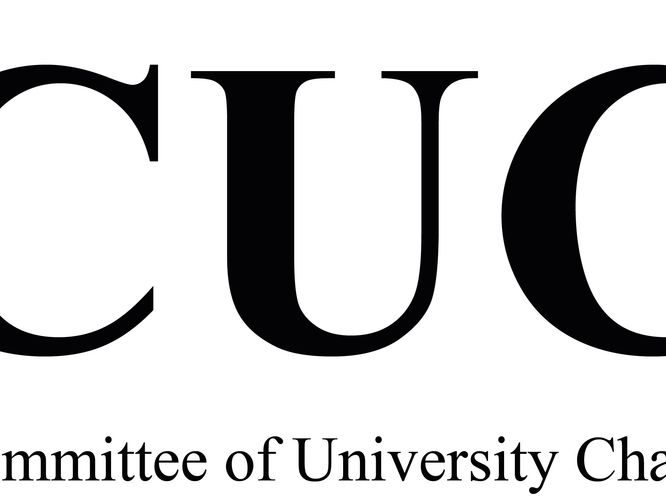Ten reasons to build resilience into the future of your university The EA...
Ten reasons to build resilience into the future of your university
The EAUC is here to support our Members and today we have launched a new Business Guide for University Governors.Make sure you share this guide with your sustainability committees and Executive teams to ensure your Governors are asking the right questions to future proof your institution.
We hope this guide will support you, our Members, to embed sustainability across your institution from the very highest level.
The guide has been developed by the Environmental Association for Universities and Colleges (EAUC), with support from the Leadership Foundation and the Committee of University Chairs (CUC); working together to lead change.
Economic, social and environmental sustainability is about assuring the future through developing resilience and adaptability in staff and students, building coherence and synergies across all university operations, and ensuring our sector’s impact is beneficial at all levels. Many universities already play a significant positive role through their governance, research, teaching and learning, campus management and use, business and investment, and their impact on staff, students and local community.
The aim of this guide is to demonstrate the business benefits that universities can capitalise on by making Sustainability Resilience, Innovation and Opportunity a top team, top table issue and one that complements and enriches current agendas.
Our students are entering a world characterised by rapid change, uncertainty and risk in socio-economic and environmental conditions which will affect them throughout their professional and personal lives. Universities hold a unique position in society and have an important and influential role to play. What universities also have is an opportunity, as a sector with a social conscience, to lead change in addressing the many challenges and opportunities educating citizens and decision-makers for tomorrow presents.
Geoff Dawson, Chair of the CUC and Chair of the Board & Pro Chancellor at Sheffield Hallam University, says: “The CUC is committed to addressing the issues arising from the imperative for sustainable development. We welcome the publication of this valuable resource that will support governing bodies to ensure that institutions secure their futures through economic, social and environmental sustainability.”
Aaron Porter, Associate Director (Governance), Leadership Foundation for Higher Education, says: “Sustainability is an increasingly important issue for the higher education sector, and governing bodies are keen to ensure that strategic matters are taken into account as part of council business. This guide will provide helpful guidance for governors to consider the key questions to ask and consider in relation to sustainability, the steps their institution can take and the appropriate measures for oversight."
Iain Patton, CEO of EAUC, says: “Governors who understand sustainability innovation and resilience are fundamental to the success of university leaders and managers at this time of change and business opportunity.”
Yvonne Hawkins, Director, Universities & Colleges, HEFCE, says: “Universities and colleges are well positioned to make a key contribution to the challenges posed by sustainable development through their teaching and research, through their influence on students, staff and communities and through their own operations. The sector has made good progress in this area and this Guide will help it to build on these achievements to build further resilience.”
The Business Guide for University Governors is available for free download at
Case Studies
Throughout the Guide you will find case studies from institutions covering each of the Ten Business Benefits. If you have a case study that illustrates how your institution is performing then please send it to us.
ENDS
Media Contact: Fiona Goodwin, Director of Operations and Planning, Environmental Association for Universities and Colleges (EAUC), 01242 714321, fgoodwin@eauc.org.uk
Notes to the Editor
About the Leadership Foundation for Higher Education:
The Leadership Foundation is committed to developing and improving the management and leadership skills of existing and future leaders of higher education. Wherever the opportunity arises we work in partnership with a range of organisations within and outside of higher education for the benefit of the sector. For more information please visit www.lfhe.ac.uk/
About the Committee of University Chairs:
The Committee of University Chairs (CUC) represents Chairs of UK University Governing Bodies and develops and promotes governance standards for higher education in the UK. It provides an opportunity for Chairs of Governing Bodies to share advice, experience and expertise on all matters concerning university governance.
For more information please visit www.universitychairs.ac.uk/.
About the EAUC:
The Environmental Association for Universities and Colleges (EAUC) is a not-for-profit charity with a membership of over 215 colleges and universities, supporting sustainability within the UK tertiary education sector. Run by members, for its members, the EAUC seeks to work with members and partners to drive sustainability to the heart of further and higher education. For more information, visit www.eauc.org.uk.
About the Sustainability Exchange:
Leading organisations from across the further and higher education sector have joined forces to create the Sustainability Exchange. Combining resources and experience from top sustainable development and education bodies, the Sustainability Exchange is the number one resource for sustainability in UK tertiary education sharing a wealth of information that is available to everyone. Delivered by the Environmental Association for Universities and Colleges (EAUC), the Sustainability Exchange provides sector professionals with up to date resources, insight, webinars, news, events and jobs connecting together sector professionals across the UK and beyond, stimulating debate and the sharing of knowledge. For more information on the Sustainability Exchange, please visit www.sustainabilityexchange.ac.uk.













